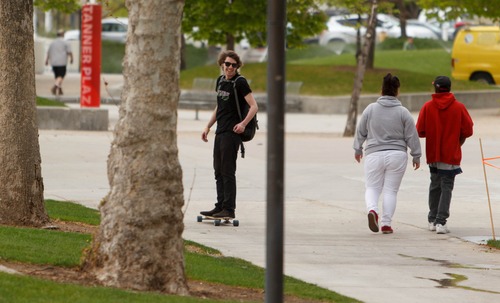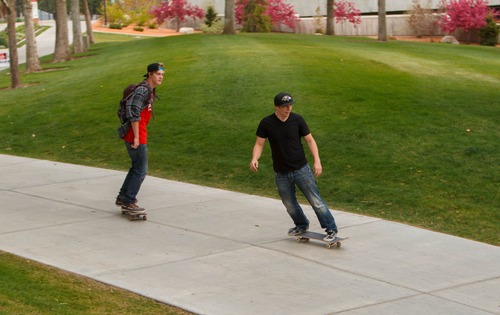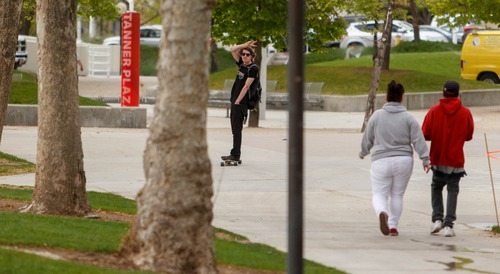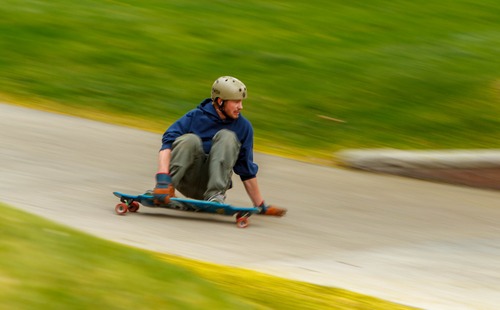This is an archived article that was published on sltrib.com in 2013, and information in the article may be outdated. It is provided only for personal research purposes and may not be reprinted.
Skateboarders and bikers wouldn't get kicked off the University of Utah campus but would be subject to new rules and safety warnings under a plan approved Monday.
Two police officers on bikes or Segways also would enforce limits on dangerous riding under a set of policy revisions passed by an executive committee of the U.'s Academic Senate.
The idea is still subject to approval by the university's Board of Trustees, but it is a significant change from a ban proposed on recreational riding of any non-motorized transportation on campus. The Academic Senate approved that proposal in a narrow vote last month, but leaders decided shortly after to reconsider over the summer.
"The policy, I think, is a much better policy," said Amy Wildermuth, associate vice president for faculty. Violators could still be fined $100 on the second dangerous riding offense and have their devices confiscated if they don't follow campus rules.
"The principal rule here is you must yield to pedestrians," Wildermuth said. "People have to make really good decisions when they ride their bike or skateboard. When it's busy, you want to get off."
Police say dangerous riding is a growing problem, especially among young, non-students who take TRAX to the top of the U. campus and skateboard down the steeply pitched road to the valley. But the new rules will have to be reviewed by a separate state agency before they can be enforced against people outside the university community. It wasn't immediately clear how long that might take.
There are already rules against dangerous riding, and public records show U. police issued 25 skateboarding citations last year. But police say the current rules are hard to enforce because an officer has to witness the behavior. The plan approved Monday would help by having people hand out safety brochures to people getting off TRAX, allowing people who see dangerous behavior to send a text message to police and adding additional warning signs.
"I think police are doing some more creative thinking about how they can police this," Wildermuth said.
About a year ago, communication professor Leonard Hawes was seriously injured in a collision with a skateboarder on campus that appeared intentional, he wrote in a piece published by The Salt Lake Tribune.
"The skateboarder … deliberately lowered his shoulder and intentionally slammed into me, knocking me off my feet," he wrote. Injuries to his left shoulder and right hip required joint replacement surgery.
His assailant hasn't been caught.
"The university is tasked with making the campus a safe place for everyone," Hawes said in the May 18 piece. "I don't want what happened to me to happen to anyone else."
But others — especially faculty members who ride skateboards — spoke against the proposed ban, Wildermuth said. It would have prohibited riding skateboards and bikes on campus except for those commuting between classes and university events.
That distinction, Wildermuth said, would have been confusing.
"I'm confident this version of the policy is actually cleaner and easier for police to enforce," she said.
Twitter: @lwhitehurst











